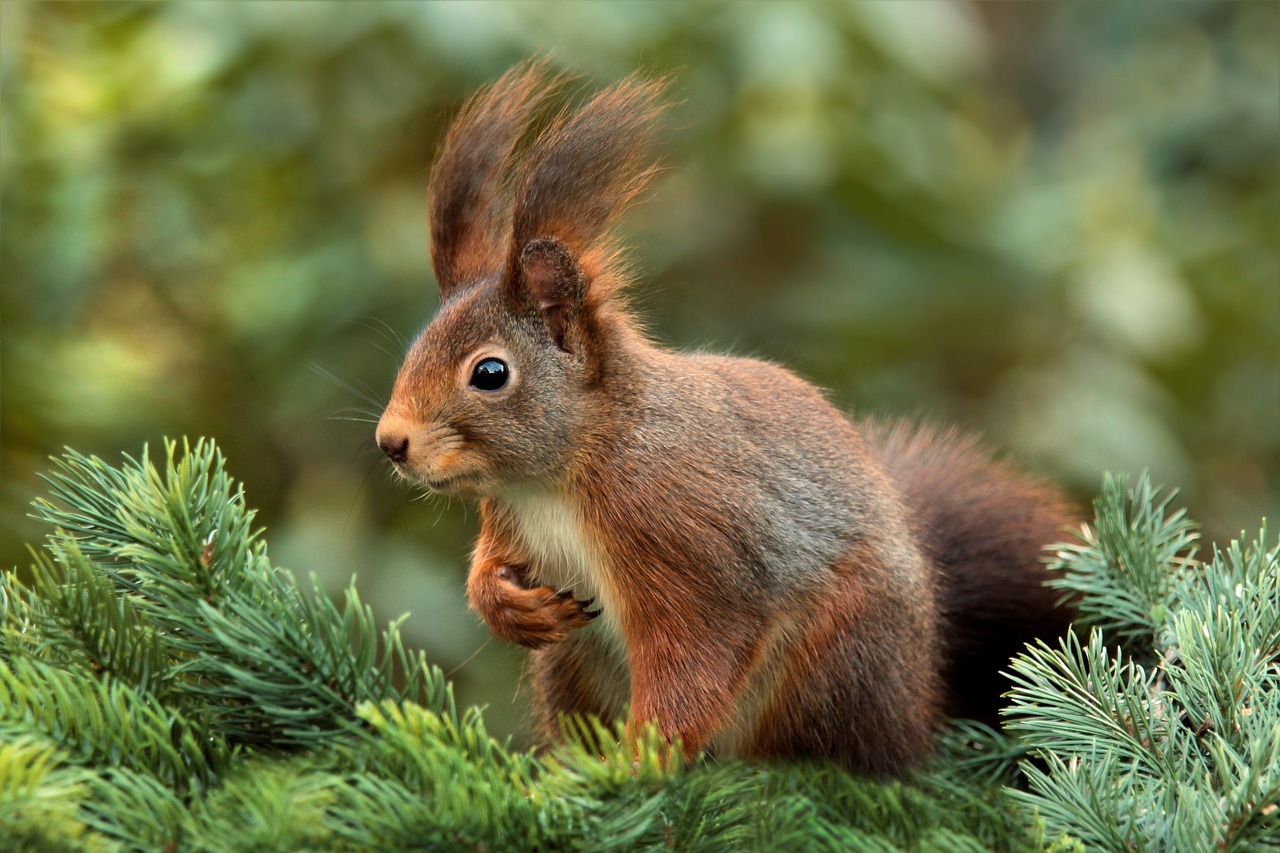Unveiling the Secret Life of Squirrels: From Backyard Visitors to Masters of Survival
The enigmatic world of squirrels holds a multitude of fascinating secrets, from their survival strategies to their complex social structures. Learn more about these captivating creatures and discover why they're more than just cute critters scampering across your backyard.

Section 1: The Humble Beginnings of Squirrels
Squirrels, part of the Sciuridae family, have been charming nature lovers for centuries. With roots dating back to the Eocene epoch, approximately 35 to 56 million years ago, they have evolved into the diverse group we see today. Squirrels have adapted to an array of habitats, from tree-dwelling species that grace our parks to ground squirrels that thrive in desert environments.
Section 2: Squirrel Behavior and Communication
Squirrels are renowned for their acrobatic skills and their penchant for hoarding nuts, but their behaviors extend far beyond these familiar traits. They communicate through a series of vocalizations, tail signals, and scent marking, a complex language that allows them to convey messages about nearby threats, territorial boundaries, and even mating readiness.
Section 3: Survival Strategies of Squirrels
Squirrels are survival experts. Their food storage strategy, known as ‘scatter-hoarding’, involves burying nuts across a wide area—a behavior that not only helps them survive harsh winters but also contributes to forest regeneration. Recent studies have shown that squirrels can even remember the locations of thousands of buried nuts, showcasing an impressive cognitive ability.
Section 4: Squirrels in Modern Day
In recent years, squirrels have adapted to urban environments, leading to increased interactions with humans. The Eastern Gray Squirrel, in particular, has become a common sight in cities across North America and Europe. Their adaptability has been a subject of ongoing research, as scientists strive to understand how urban environments affect wildlife behavior and evolution.
Section 5: Impact of Squirrels on the Ecosystem
Despite their small size, squirrels play a significant role in their ecosystems. As seed dispersers, their scatter-hoarding behavior helps in the propagation of trees. Additionally, they serve as prey for various predators, contributing to the balance of the food chain. However, introduced species such as the Eastern Gray Squirrel in Europe have had a negative impact, outcompeting native species and causing ecological disruption.
Squirrels, though often seen as ordinary backyard creatures, are far more than meets the eye. Their intriguing behaviors, impressive survival strategies, and significant ecological roles make them a captivating subject of study. As we continue to learn more about these remarkable rodents, we may find that they hold even more secrets waiting to be discovered.




